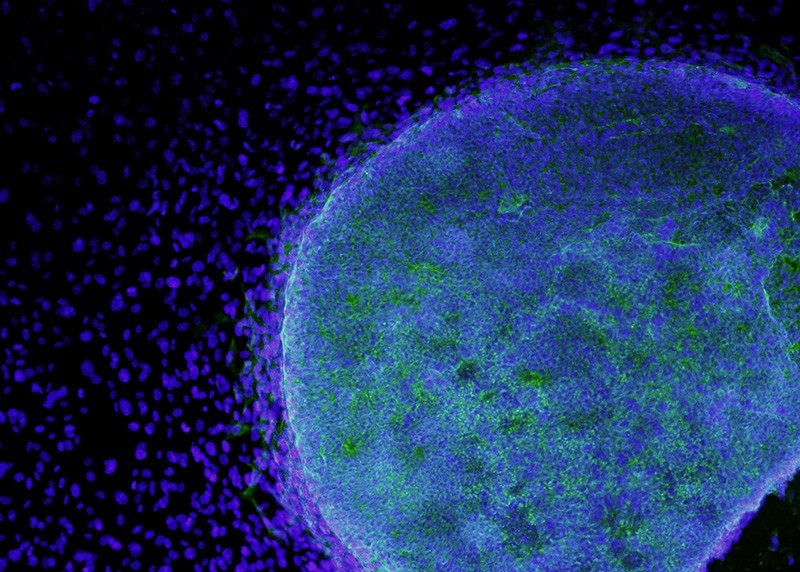Image Caption: Robert Klein is finalizing a ballot initiative that asks California voters to re-fund the state’s stem cell agency. MediaNews Group/The Mercury News via Getty Images
As California’s stem cell research agency runs through the last of its $3 billion in state funding, a delicate negotiation is underway between its leadership and the man developing the 2020 ballot initiative to keep it alive.
Robert Klein, the real estate investment banker behind the 2004 ballot initiative that created the California Institute for Regenerative Medicine (CIRM) in Oakland, last month submitted a new proposal to the California attorney general’s office that would allocate another $5.5 billion in proceeds from state bond sales to the agency. At a meeting today of CIRM’s board, Klein, who heads the advocacy group Americans for Cures in Palo Alto, California, explained and defended aspects of the new proposal that have drawn some criticism.
“Most of us are individually very supportive of this upcoming initiative,” George Blumenthal, chancellor of the University of California (UC), Santa Cruz, said at the meeting. “We don’t want to make the perfect the enemy of the good.”
But some board members worried the funding priorities laid out in the initiative were too prescriptive and would hem in the agency’s leadership. The proposal stipulates, for example, that $1.5 billion of the new budget will fund research to treat disorders and conditions affecting the brain and central nervous system, including Alzheimer’s disease, stroke, autism, and schizophrenia.
As a percentage of total funds, that’s about in line with what the agency has allocated to neurodegenerative conditions in the past, CIRM board chair Jonathan Thomas noted at the meeting. Some applauded the proposal as an incentive to scientists pursuing tough problems in neuroscience. The requirement would be “a visionary indication by CIRM that … we recognize the unmet need,” said board member Kristiina Vuori, president of the Sanford Burnham Prebys Medical Discovery Institute in San Diego, California.
Others resisted the idea of new constraints on research funding. “I’m concerned that this kind of constraint … comes from a lack of confidence in the judgment of our reviewers,” said Keith Yamamoto, vice chancellor for science policy and strategy at UC San Francisco.
Klein has already made some changes to the proposal based on board members’ feedback, and may make more before the state deadline to finalize the text by 8 p.m. Eastern Standard Time Monday. But the $1.5 billion allocation will stay, he says. “The voters need to know and understand what the purpose is for the funds—and have some predictability.”
The document also emphasizes an issue likely to weigh on California voters’ minds: whether they’ll be able to access and afford any potential treatments developed with CIRM money. The new initiative would create an “accessibility and affordability working group” to hash out reimbursement details with state insurance plans and other payers before a new treatment gets approved by the U.S. Food and Drug Administration (FDA). It would also set up a system of “community care centers of excellence” that would expand participation in clinical trials beyond large, coastal academic medical centers already getting CIRM funding.
That proposal is troubling to Jeff Sheehy, a CIRM board member and HIV patient advocate. In a critique of the initiative posted to the California Stem Cell Report last month, he questioned whether the agency would be overselling the potential benefits of experimental stem cell therapies to people who don’t have access to other clinical trials or cutting-edge treatments. “It’s somewhat surreal to me to go to an underserved community and offer them clinical trial access when we cannot offer them the highest standard of basic medical care,” he said at today’s meeting.
Klein says the board will have discretion about when and where to set up the new clinical centers and will ensure trials are conducted ethically.
With a newly established nonprofit entity, Klein now has until 21 April 2020 to collect 623,212 signatures so that the initiative can appear on the November 2020 ballot. (CIRM, as a public agency, can’t participate in that signature gathering effort.) In July, Americans for Cures conducted a poll of about 1150 likely voters and found a 65% approval rating for re-funding CIRM, Klein says.
Many researchers credit the agency with creating a strong infrastructure for stem cell research in the state and shepherding dozens of experimental treatments into human trials. But no CIRM-funded stem cell therapy has yet won FDA approval, leading critics of the agency to ask whether the initial 2004 initiative, born from opposition to a ban on federal funding for embryonic stem cell research, promised “cures” it couldn’t deliver.
Klein is intent on dispelling doubt by next November. “Scientists have developed tremendous potential in the candidate therapies that are awaiting new funding,” he says. “I think we have a moral obligation to advance those therapies.”


